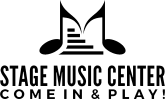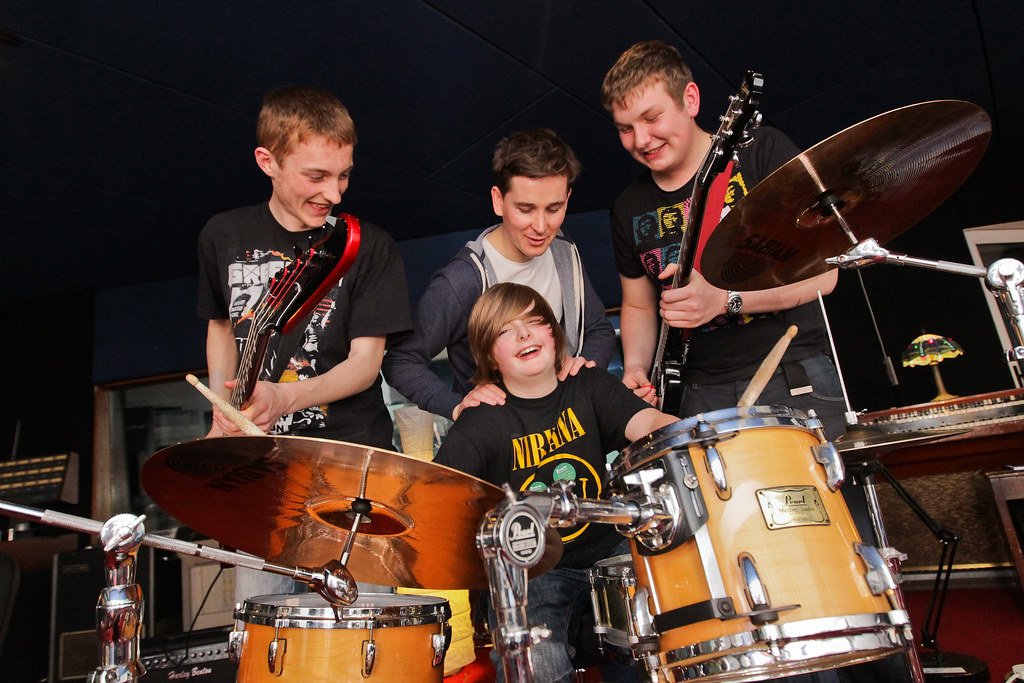The Role & Importance of Hertz in Music
Welcome to the wonderful world of music, where the joy of sound goes way beyond having a good time. Imagine your favorite song – it's not just a mix of sounds; it's a blend of different Hertz values that create a kind of emotional magic. Hertz isn't only about making music enjoyable; it's about making it touch you deeply.
Hertz is like the building block of sound, measuring how fast musical waves move. It's the heartbeat of music, setting the rhythm for the feelings and vibes you get when you listen.
Decoding the Language of Hertz
Hertz, often abbreviated Hz, is like the ruler for how fast sound waves move, telling us the number of cycles they complete in one second. Picture every musical note as a kind of pulsating wave, and Hertz is the boss deciding how quick and strong these vibes are.
Think of Hertz as the rhythmic heartbeat behind the tunes you love, forming the base for the melodies and harmonies that hit you in the feels. Basically, Hertz is the conductor making sure every note plays at the right speed, creating the groovy symphony you feel with every beat.
Getting Hertz helps you hear the notes and sense the lively pulse in every piece of music.
The Symphony of Frequencies
Imagine standing before an orchestra, each musician contributing to a harmonious composition. Similarly, in music, every note carries its own unique Hertz value, contributing to the rich tapestry of frequencies.
High-pitched notes, such as the cheerful chirping of birds or the delightful jingle of wind chimes, boast higher Hertz values, meaning they vibrate more times per second. These tones bring a sense of brightness and upliftment to the musical composition.
On the other hand, lower-pitched notes, like the deep resonance of a cello or the earthy thump of a bass drum, carry lower Hertz values, indicating slower vibrations. These tones ground the musical arrangement, giving depth and a sense of gravity to the symphony. It's like a dance of frequencies, where each note finds its place, creating a rich and diverse auditory experience.
As you immerse yourself in the Symphony of Frequencies, it's more than just listening – it's like taking a musical journey that connects with your emotions.
Think of a waterfall of vibrations reaching deep into your soul, stirring feelings of joy, nostalgia, or quiet reflection. Basically, the Symphony of Frequencies turns music from just a mix of sounds into a lively, emotionally charged show that really hits you in the feels.
Sound Science: Unlocking the Basics
To better understand hertz, you must know two key terms: frequency and amplitude. Frequency, or pitch, tells us how often a sound wave repeats, while amplitude measures its strength, impacting loudness.
Humans hear between 20 Hz and 20,000 Hz, with ultrasonic frequencies above 20,000 Hz. Dogs and bats, with sharp hearing, catch ultrasonic sounds. Elephants use infrasounds, below 20 Hz, for communication.
Amplitude, in decibels (dB), determines loudness. A rock concert at 125 dB tests our pain threshold. Decibels work on a scale where a 10 dB increase doubles loudness.
The acoustic environment, a mix of natural and human-caused sounds, forms our soundscape. Sound healing taps into these frequencies for well-being.
In national parks, understanding sound levels is vital. Noise, unwanted sound, varies widely, impacting both wildlife and visitors. Parks actively work to reduce noise, preserving the natural soundscape.
Connecting Hertz in music to sound science enriches our understanding of how frequencies and amplitudes impact our world, extending their influence beyond music into nature and our well-being.
Hertz as a Therapeutic Force
Beyond its role in creating musical beauty, Hertz carries its therapeutic potential. In fact, experts have identified specific frequencies that possess stress-relieving and tension-alleviating qualities. It's as if certain Hertz values hold the key to a musical remedy for the strains of modern life.
Nature's Healing Frequencies
Hertz in music leaves positive effects on both the body and mind,
Nature, with its incredible wisdom, creates a soothing symphony that includes the remarkable 528 Hz frequency. Scientifically proven to have positive effects on both the body and mind, this frequency is part of the Solfeggio frequencies known for their spiritual and healing properties.
Also named the "Love Frequency," 528 Hz resonates with the heart chakra, promoting feelings of harmony, love, and compassion. It's considered the frequency of creation, a fundamental building block of the universe.
Healing frequencies act like a soothing balm, creating a haven for tired souls navigating the hustle and bustle of daily life. Just as nature offers solace through babbling brooks, rustling leaves, and seaside waves, music's therapeutic power brings comfort and rejuvenation.
Whether you're listening to the gentle tunes of a piano, the rhythmic beats of a drum, or the harmonious interplay of different instruments, music becomes a gift. It provides a harmonious escape and a chance for renewal in our fast-paced world.
Bridging the Gap: Hertz in Music Education
Now, let's bridge the gap between the healing power of Hertz and your musical education. At Stage Music Center, we view music lessons as more than just a means to learn an instrument; they are a transformative journey that taps into the magic of sound to foster confidence, release tension, and ease worries.
The Therapeutic Rhythm Unleashed
In our music lessons in Winchester and Acton, MA, our students do not just practice scales and chords; they immerse themselves in the therapeutic rhythm of carefully curated frequencies.
Whether you're plucking the strings of a guitar, caressing piano keys, or blowing through a saxophone, you're not just creating music; you're weaving a symphony that resonates not only in the air but within your very being.
Our experienced instructors at Stage Music Center serve as guides on your personalized musical journey. They assist you in navigating the transformative potential of specific frequencies, allowing you to harness the profound impact of sound on your emotional and mental well-being.
We invite you to join our private music lessons where you’ll not only learn music but also experience the transformative magic of sound. Or step into the inclusive world of our Stage Bells Group Singing Class, where everyone is invited to join and create harmonies with fellow music enthusiasts.
Your journey into the therapeutic world of Hertz awaits at Stage Music Center, Winchester, and Acton MA.
Our music lessons are available to people of all ages from Stoneham, Woburn, Arlington, Medford, Lexington, Carlisle, Concord, Westford, and Littleton.
Register today or contact us for more information.
Read more posts from our blog:
Lights, Camera, Music! How Actors Became Musicians for the Silver Screen
Discovering Cinematic Enchantment: Music's Role in Your Favorite Movies

